Mount Fuji, which is called Fujisan in Japanese, is a Japan’s highest mountain at 3,776 meters. It has been a physical, cultural and spiritual symbol of Japan. Fujisan has evolved into something invaluable not only to Japanese people but to everyone around the world. In 2013, the UNESCO World Heritage Committee announced its approval Mount Fuji as a World Heritage Site. Visiting or viewing Mt Fuji is a must-do experience when you are in Japan, especially if you are around Tokyo. There are many places in Japan to view Mount Fuji. This article will share you an experience of viewing Mt Fuji and Lake Kawaguchi from Mount Tenjō.
Mount Tenjō
Mount Tenjō (天上山; Tenjōsan) is one of the best viewing spots of Mt. Fuji. It is a 1,104-meter-high mountain located right next to Lake Kawaguchiko, Yamanashi Prefecture. Mount Tenjō is accessible by cable car and offers spectacular views of Mount Fuji and Lake Kawaguchiko.
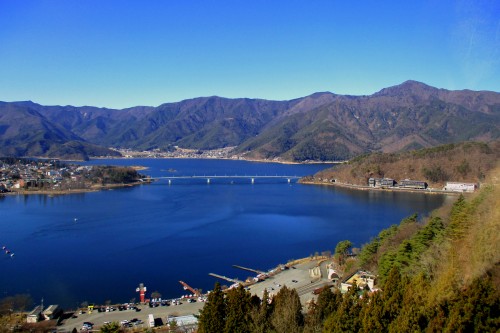
The best time to view Mt. Fuji is in the morning, on a clear day during winter. Too bad I went to view Mt. Fuji in the afternoon. I couldn’t see it clearly because the sun was too bright.
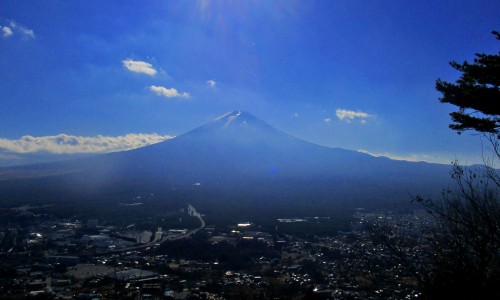
Kachi Kachi Yama Ropeway and Folktale
Kachi Kachi Yama Ropeway, is a cable car which takes you up towards the top of Mt Tenjō. The name of the ropeway is derived from popular Japanese folktale, Kachi-kachi Yama (Mount Kachikachi). I will try explain the story briefly:
A long time ago, there was an old married couple who lived at the foot of a mountain. They grew and sold vegetables for a living. One day, the husband went to their vegetable patch and saw a raccoon dog (tanuki) eating his crops. He scolded the raccoon dog and it ran away. However, the raccoon dog came back every day and ate all of the vegetables.
As the story goes, the husband caught the raccoon dog and intended to cook it later. When he left for town, the raccoon dog cried and begged the wife to set him free, promising never to come to the patch again. The wife freed the animal, but it turned on her and killed her. The raccoon then committed an evil trick. In Japanese myths, a raccoon dog has the ability to shapeshift. So the raccoon dog disguised itself as the wife and cooked a soup, using her flesh. When the husband came home, the raccoon dog served him the soup. After the meal, the raccoon dog reverted to its original appearance and revealed its treachery before running away and leaving the poor man in shock and grief.
The couple had been good friends with a rabbit living nearby. The rabbit came and told him that it would avenge his wife’s death. Then the rabbit pretended to befriend the raccoon dog. One day, while the raccoon dog was carrying a heavy load of kindling on his back to make a campfire, he was so burdened that he didn’t notice when the rabbit set fire to the kindling. Soon, the crackling sound reached its ears and it asked the rabbit what the sound was. In Japanese, the onomatopoeia for the sounds a fire makes is kachi kachi. “It is Kachi-Kachi Yama,” the rabbit said. “We are not far from the mountain, that’s why you can hear its sound.” Eventually, the fire reached the raccoon dog’s back, and burned it badly.
Mt. Tenjō was the inspiration for the mountain which appears in the story. This explains all the statues of the rabbit and raccoon dog found on Mt. Tenjō.
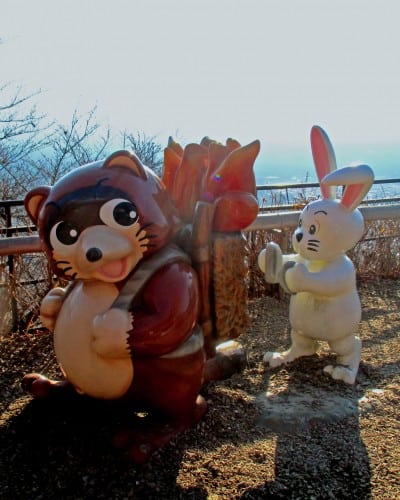
There is also an usagijinja (rabbit shrine) on Mt. Tenjō. This small shrine is dedicated to the rabbit from the story of Kachi Kachi Yama.
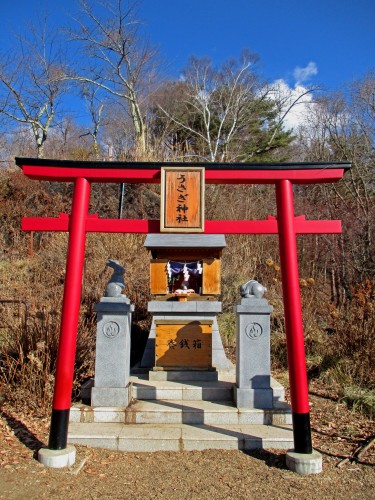
How to Get There
From Shinjuku Station, you can take a JR Chuo Express Train to Takaosan, then change to the JR Chuo Local Train towards Otsuki. You can also take the Limited Express Kaiji to Otsuki, but you need to make a reservation beforehand or pay an extra fee once you’re onboard the train. If you have the JR Tokyo Wide Pass or JR Pass, you can take this train without reservation and without needing to pay the extra fee.
From Otsuki, take the Fujikyuko Line (it’s not a JR line!) to Kawaguchiko Station. From there, take a walk for 15 minutes or take the Kawaguchiko Tour Retro-Bus to the Kachi Kachi Yama Ropeway Entrance stop. A JR Tokyo Wide Pass can also be used for the Fujikyuko Line.
[cft format=0]
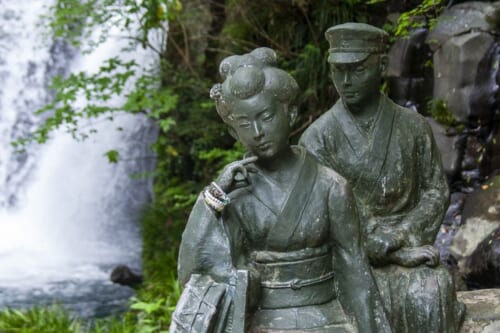

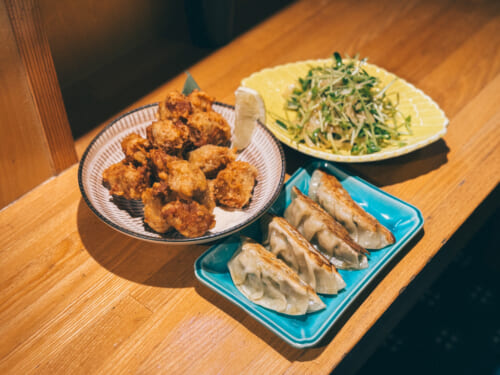
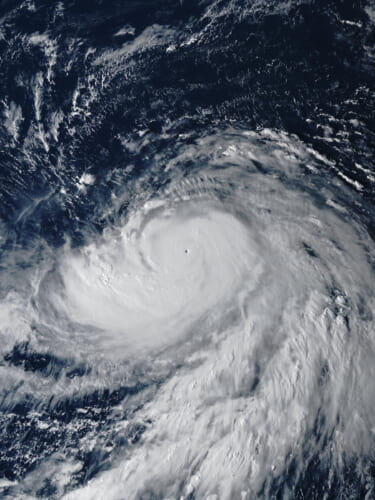

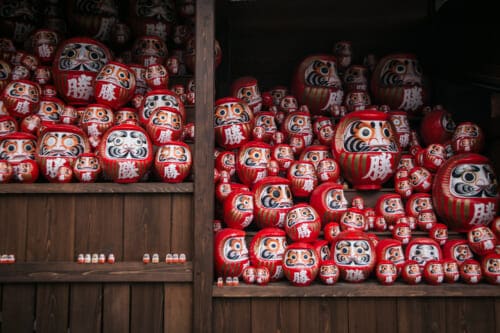
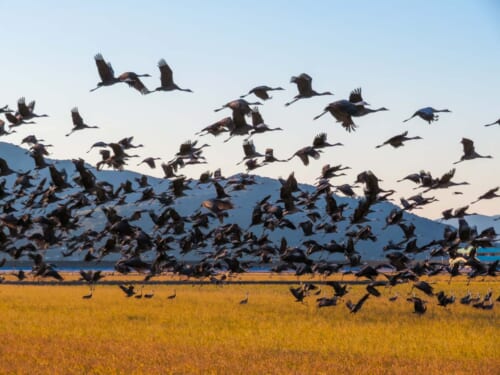


No Comments yet!